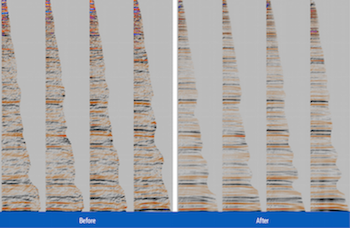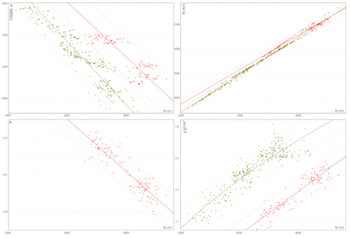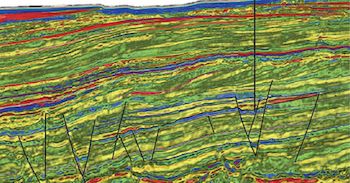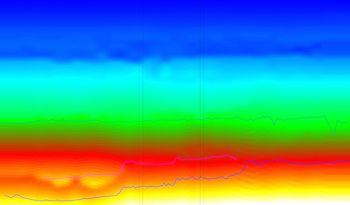info@pgs.com
Seismic data conditioning, using a Reservoir Oriented Processing (ResOP) workflow, is a key improvement for any quantitative seismic interpretation or reservoir characterization project using pre-stack seismic inversion technology. A tailored processing sequence is applied to remove noise and enhanc ...
Read More ...
PGS uses a very efficient AVO/AVA workflow that allows for the rapid evaluation of prospectivity over large datasets. The elastic attributes calculated are routinely used as a first step in de-risking prospectivity using pre-stack seismic data.
Based on angle stacks or PSTM/PSDM gathers, we derive ...
Read More ...
PGS’ specialist approach to rock physics and AVO studies is based on a robust statistical rock physics workflow and is the foundation of more extensive quantitative interpretation studies enabling us to handle rock physics models in the depth domain.
The fundamental aim of the rock physics workflow ...
Read More ...
Our seismic inversion workflow is capable of handling 2D or 3D input data independently or in combination. For example, wells on matched 2D lines are tied to a 3D survey for both inversion calibration and model-building constraints. In the absence of well data within a survey (or tie-lines), wavelet ...
Read More ...
The depth conversion workflow is an integral part of our reservoir characterization workflow. It is especially relevant for lithology/fluid prediction. The primary objective is to produce a velocity model with a stable and geologically plausible background trend which will enable accurate depth conv ...
Read More ...
The PGS lithology/fluid prediction workflow utilizes a Bayesian supervised classification scheme to make quantitative predictions based on inverted seismic data and depth-dependent, statistical rock physics models over a target zone of interest. The process generates lithology and fluid probability ...
Read More ...
Determining the uncertainty inherent in reservoir property estimation is a key requirement for the risk assessment of an existing asset. PGS uses a state-of-the-art Bayesian inversion which directly inverts reservoir properties in the depth-domain. This, coupled with depth dependent rock physics, pr ...
Read More ...
PGS has developed a state of the art methodology to generate seismic pore pressure cubes by incorporating high-density velocity analysis into an integrated workflow.
Well data are used to determine the relationship between effective stress and velocity and to calibrate the seismic interval velociti ...
Read More ...








